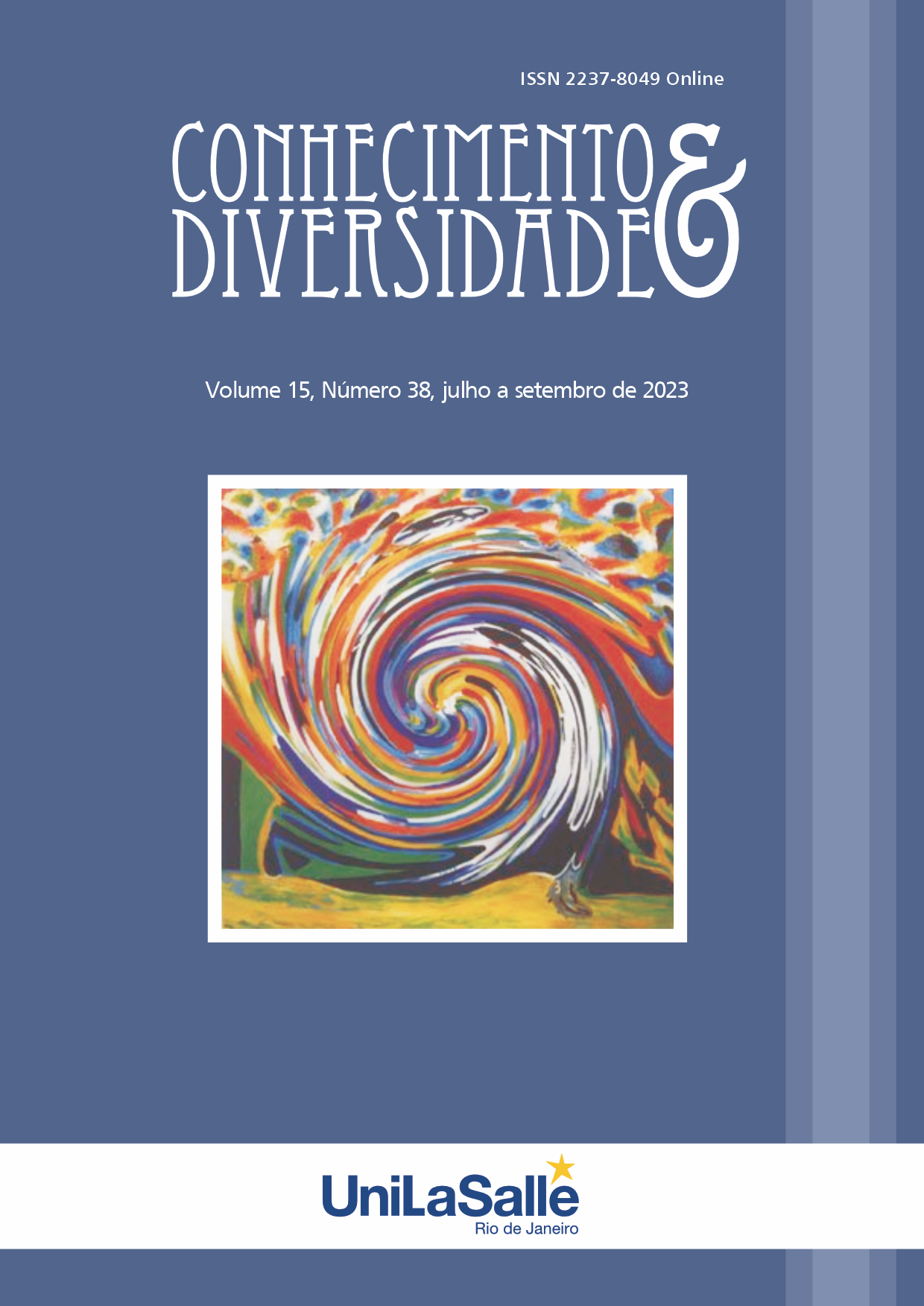TECNOLOGIAS MODERNAS DE FORMAÇÃO DE PROFESSORES PARA EDUCAÇÃO E EDUCAÇÃO DE CRIANÇAS COM DESENVOLVIMENTO PSICOFÍSICO ESPECIAL
DOI:
https://doi.org/10.18316/rcd.v15i38.11052Palavras-chave:
Educação inclusive, Educação, Processo educacional, Ensinar criançasResumo
O artigo apresenta os princípios fundamentais da educação inclusiva: contexto sociocultural, contexto histórico, apoio legislativo e regulamentar internacional e nacional para a implementação e funcionamento da educação inclusiva, que é considerada como a base de mudanças transformacionais na educação de pessoas com necessidades especiais. São apresentadas as perspectivas de periodização e desenvolvimento de crianças com necessidades especiais durante a independência da Ucrânia; as mais novas abordagens no ensino de crianças com características psicofísicas e estratégias para implementação bem-sucedida da prática inclusiva; descreve-se o papel e o significado da influência dos pais no processo de educação inclusiva.
Referências
ARTILES, A.J., HARRIS-MURRI, N., & ROSTENBERG, D. Inclusion as social justice: Critical notes discourses, assumptions, and the road ahead. Theory Into Practice, 45(3), 260-268, 2006.
BAGLIERI, S. & KNOPF, J.H. Normalizing Difference in Inclusive Teaching. Journal of Learning Disabilities, 37(6), 525–529, 2004.
BARNES, M. K. Strategies for collaboration: A collaborative teaching partnership for an inclusion classroom. Reading and Writing Quarterly, 15(3), 233-38, 1999.
BILLINGSLEY, F., JACKSON, L. & RYNDAK, D.L. Defining School Inclusion for Students With Moderate to Severe Disabilities: What Do Experts Say? Exceptionality 2220, 8(2), 101–116, 2000.
BOETTCHER, C., PISCITELLI, V. & RAFFERTY, Y. The impact of inclusion on language development and social competence among preschoolers with disabilities. Exceptional Children, 69(4), 467, 2003.
DEPPELER, J., LOREMAN, T., & SHARMA, U. Reconceptualising specialist support services in inclusive classrooms. Australasian Journal of Special Education, 29(2), 117-127, 2005.
MASTROPIERI, M.A., SCRUGGS, T.E., NORLAND, J.J., BERKELEY, S., MCDUFFIE, K., TORNQUIST, E.H., & CONNORS, N. Differentiated curriculum enhancement in inclusive middle school science: Effects on classroom and high-stakes tests. The Journal of Special Education, 40(3), 130-137, 2006.
Downloads
Publicado
Edição
Seção
Licença
Copyright (c) 2023 Alla Kharkivska, Oksana Babakina, Kateryna Dmytrenko, Olena Kapustina , Alona Piekharieva

Este trabalho está licenciado sob uma licença Creative Commons Attribution 4.0 International License.
Conforme recomendado pelo o Public Knowledge Project, a RCD adota para seus artigos uma licença CREATIVE COMMONS: Atribuição CC BY 4.0.
Esta licença permite que outros distribuam, remixem, adaptem e construam sobre o seu trabalho, mesmo comercialmente, desde que lhe dêem crédito pela criação original.
Esta é a licença mais adequada oferecida.
Recomendado para a máxima divulgação e uso de materiais licenciados.



